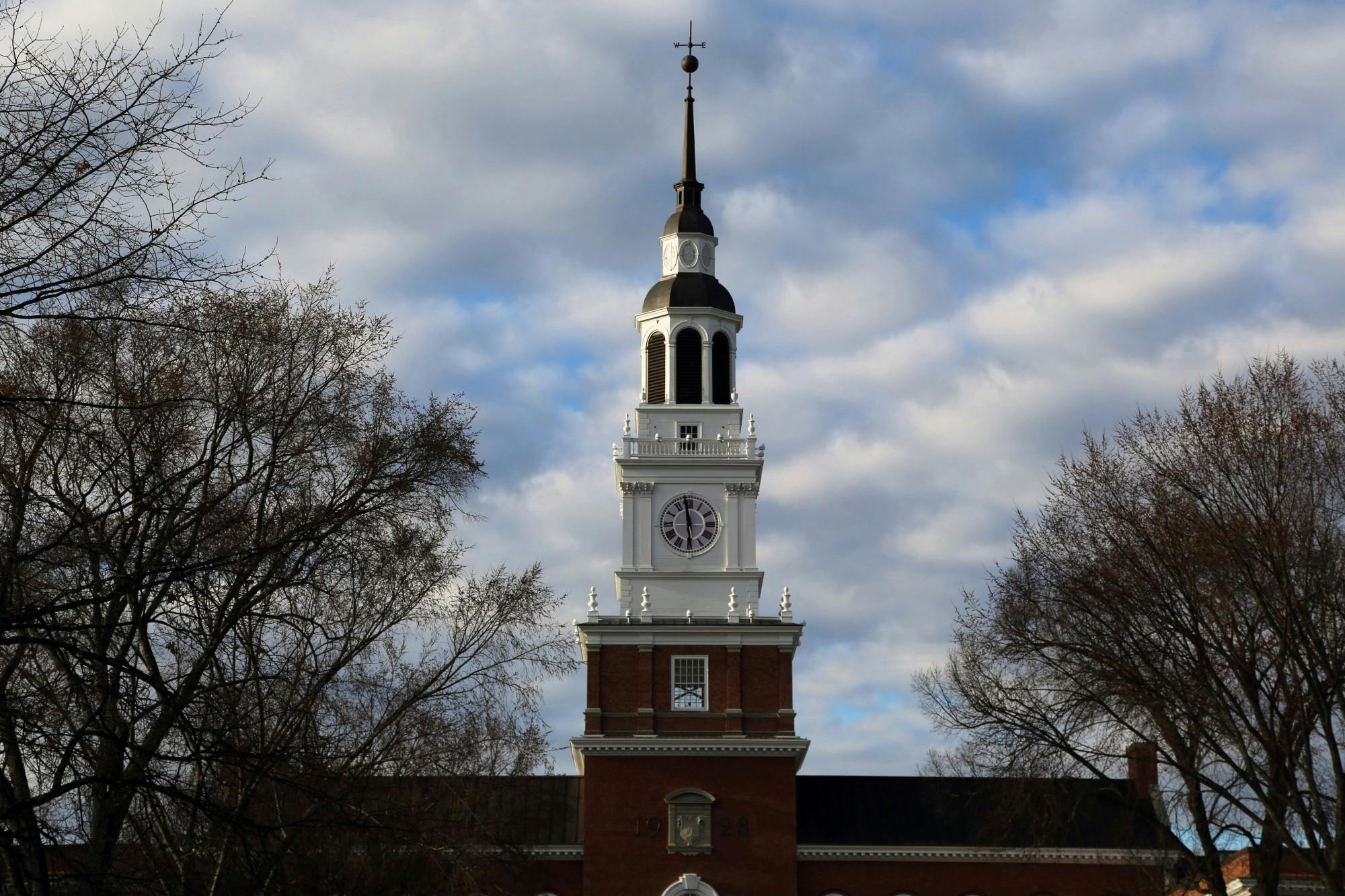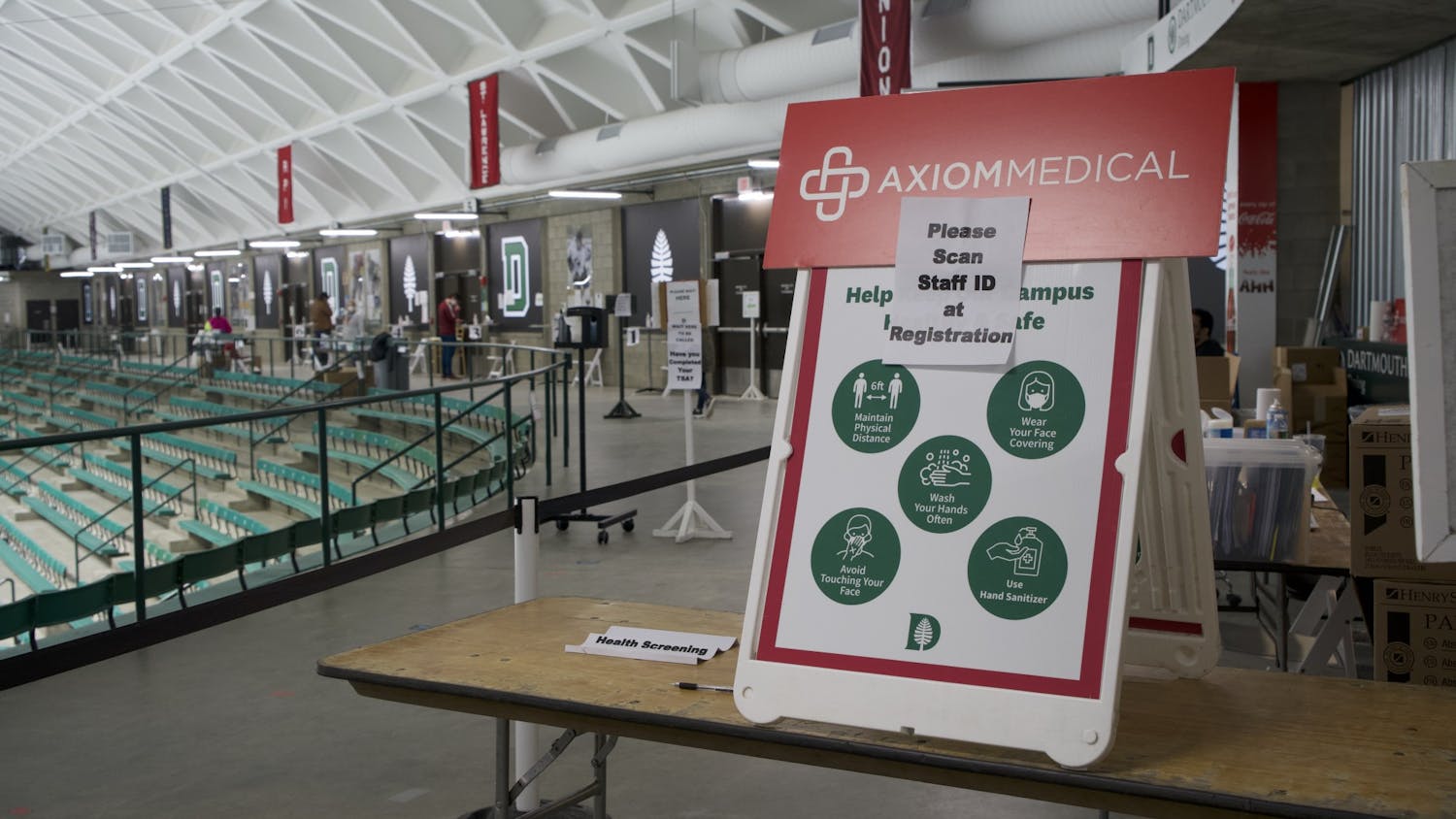Since April 9, roughly 400 off-campus students enrolled in classes have been accepted through a waitlist process offered by the College for on-campus access to facilities including Baker-Berry Library, the Hopkins Center for the Arts, the Collis Center and Alumni Gym, according to College Health Service director Mark Reed.
College spokesperson Diana Lawrence wrote in an email statement that all eligible students who completed the one-time waitlist application by April 7 were approved for on-campus access to select facilities.
While access to some facilities will be expanded, Lawrence wrote that the “public health conditions” did not allow for increased occupancy in the residence halls or dining facilities this spring.
According to Reed, the College decided to grant access to facilities that generally require appointments and can be easily monitored for density, factors that do not apply to residence and dining halls. Reed specifically noted that the Class of 1953 Commons is already at capacity as seating arrangements were designed to accommodate the limited number of students living on campus.
Low COVID-19 case counts —with the exception of the winter outbreak — drove the College’s decision to ease restrictions on certain facilities, Reed said. Even with the influx of students approved off the waitlist, Reed noted that the College has maintained the same capacity limits for these spaces.
Although these facilities are still not operating at maximum capacity, their increased use by approved off-campus students may inconvenience those who are living on campus, Reed said.
“Whatever you do, some people will be happy, and some people will be unhappy,” Reed said. “It is possible that there will be an on-campus student who wants to work out on a bike at a certain hour and it will be taken [by an off-campus student]. That would be an inconvenience. If it becomes really overwhelming, then we may need to adjust.”
But Reed said he hopes that both on-campus and off-campus students appreciate Dartmouth’s decision and will use it as an opportunity to work and socialize together in approved spaces.
Emily McConnell ’22, who was accepted off the College’s waitlist, said she is looking forward to attending rehearsals on campus with her dance group, Fusion Dance Ensemble.
“I'm really excited because now that I have access, I’ll be able to go to in-person dance rehearsals, which is huge because there’s not really a room in the place where I’m living to dance,” McConnell said.
According to Blake Danziger ’22, the ability to leave his off-campus house and work in Dartmouth’s libraries will provide a much-needed “change of scenery” from his current work environment, which he said can be “distracting” at times.
Sonia Eckstein ’23 noted that gaining access to workspaces on campus, such as libraries and study rooms, has had a positive impact on her productivity.
“We’ve all gotten used to working basically in the same room that we sleep,” Eckstein said. “It definitely makes a difference to leave the house and have a quiet place where you know you won’t be disturbed.”
Eckstein added that she is glad to have access to a gym on campus that is “safe and following all of the [COVID-19] protocols,” as opposed to certain gyms in the Upper Valley that operate under a less stringent set of guidelines.
In a recent email to students eligible for on-campus approval, Dean of the College Kathryn Lively outlined a series of protective measures, including those already established for students living on campus.
“You must comply with all testing, physical distancing, face covering, facilities use and other College health and behavioral guidelines,” Lively wrote. “Failure to do so will lead to immediate revocation of any waitlist access privileges for the remainder of spring term, and revocation of approval for summer for those of you who may have that in place.”
Lively also wrote that students must reside at the New Hampshire or Vermont address they provided for the remainder of the spring term. Should a student’s address change, they are expected to notify the College, which will then revoke “waitlist access approval,” Lively added.
Danziger said that the College’s physical distancing and frequent testing policies make him “generally feel safe” using campus facilities.
Despite existing safety measures, Reed noted the possibility of another outbreak, in which case the College “would have to take whatever steps [it] thinks are necessary to protect the community.”
Those steps may entail revocation of on-campus facilities access for enrolled off-campus students, Lively wrote, adding that students “will be expected to comply” in the event of renewed restrictions.




